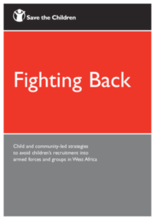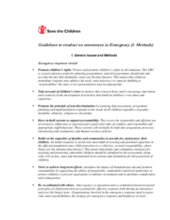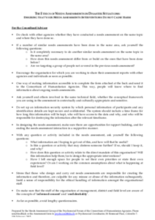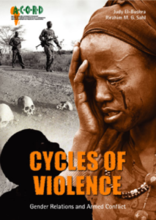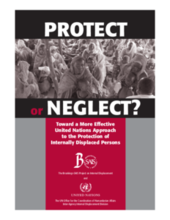Displaying 441 - 450 of 497
A research study which explores strategies used by children, families and communities to prevent child recruitment into armed forces.
A paper with guidelines for keeping children with families and providing proper care and protection for them. It provides examples and plans for those interested in planning care for separated children.
Guidelines for good practices in conducting assessments following an emergency.
This document provides a tool that was used to assess broad capacity areas for quality OVC response in Uganda.
Guidelines for caregivers of children in emergency situations, with a focus on the role of play in childhood learning and development. Includes a comprehensive list of suggested activities.
Lists ethical “do’s and dont's” specific to Consultants/Advisors, Managers/Supervisors, and Field-Level Workers arranging and conducting Needs Assessments in disaster situations.
Guidance on planning and implementation of child-specific disarmament, demobilization and reintegration (DDR) programming in a peacekeeping environment. Includes definitions, roles for child protection agencies, and key programming considerations on prevention of recruitment.
Examines the impact of war on gender relations. Discusses the role of gender relations in creating conflict.
A paper that makes recommendations (based on field work) to the UN, NGOs and governments for a more effective international system to care for internally displaced persons.
A study on the experiences of girl soldiers in Angola before, during and after their participation in armed conflict. Includes recommendations for gender-specific responses.

